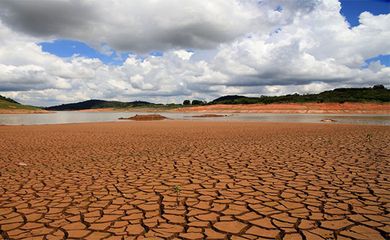Plant reservoirs reach lowest level in 13 years


The main sources of water for the country's power plants, the reservoirs reached 20.93% of their capacity on Tuesday

The scarce raining in the last months was reported on Tuesday (Oct 21) to have reduced the volume of water at hydroelectric power plants in the Southeast and Central-West to the lowest level since 2001—when the country was forced to introduce rationing.
The main sources of water for the country's power plants, the reservoirs reached 20.93% of their capacity on Tuesday, according to the National System Operator (ONS). On the same date in 2001, the volume observed was 21.39% of the limit.
In both regions, the precipitation in recent days was not enough to change the forecasts for the month, which point towards an even more dramatic reduction—levels may sink to 19.9% by the end of October.
The scenario is also worrying in the Northeast. Reservoirs were operating on Tuesday (21) at an average of 17.5% of their capacity.
Federal authorities have repeatedly declared that there is no risk of a shortage in energy supply. In a note released in September, the Monitoring Committee of the Electric Sector said that the National Interconnected System is structurally balanced and is perfectly capable of ensuring countrywide supply of water.
One of the measures adopted in an attempt to compensate for a possible decline in power generation, complementing it, is the use of thermal power stations, which is costlier.
Translated by Fabrício Ferreira
Fonte: Plant reservoirs reach lowest level in 13 years



